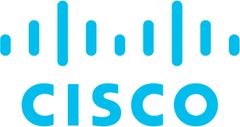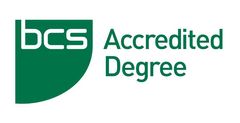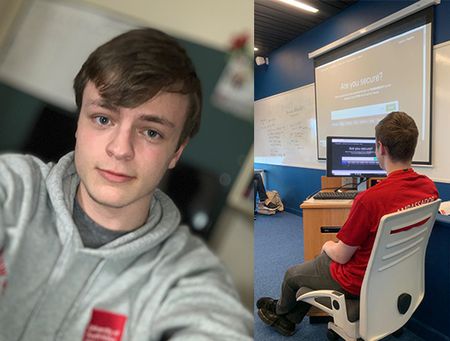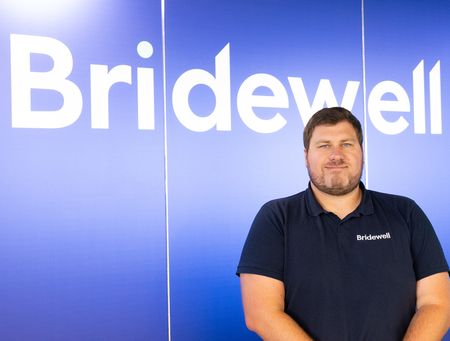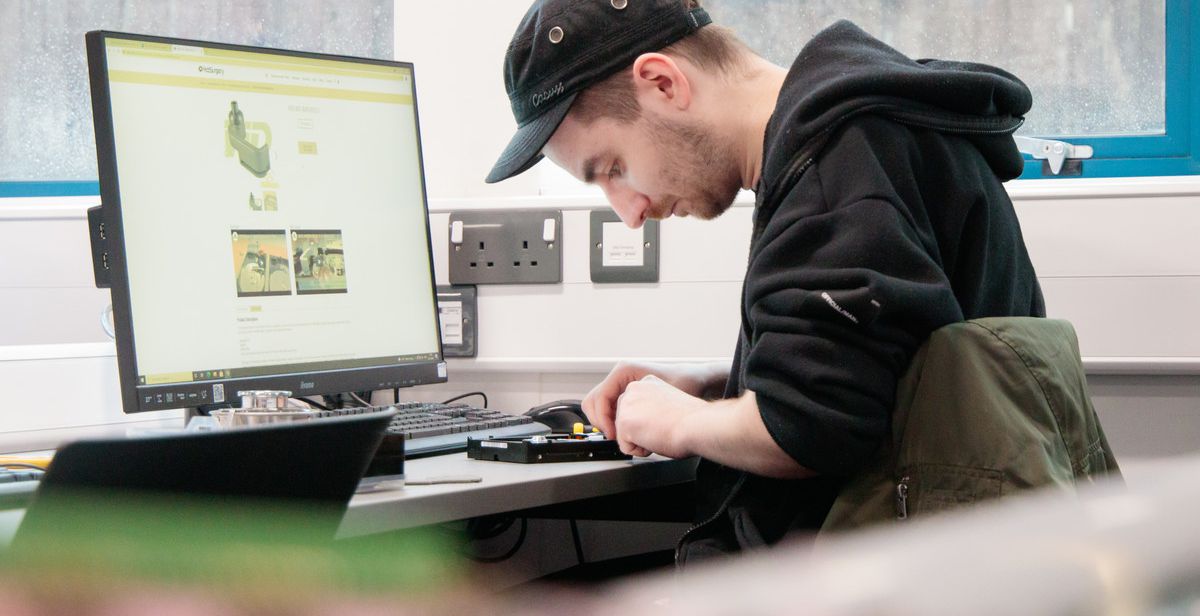
BSc (Hons) Applied Cyber Security
With the increasing sophistication of threats to the cyber landscape coupled with the rapid increase in attempts to disrupt our critical systems and gain commercial and personal data, there is an ever-increasing demand for high skilled cyber security graduates to defend individuals and organisations from a diverse range of cybercrimes.
The BSc (Hons) Applied Cyber Security degree is unique in nature, as it offers a high level of practical learning to complement its academic underpinning. Our courses are designed in collaboration with industry partners so that you will benefit from the opportunity to work alongside industry enabling you to develop the skills and knowledge you need to succeed in the workplace. Through a range of learning experiences, you will gain the knowledge of how to keep computer systems free of interference by testing and evaluating them for vulnerabilities and forensically examining the evidential data they provide, to find solutions to real-life problems.
Throughout the course, you will have the opportunity to work on projects and live briefs set by industry, so your knowledge and skills will be relevant and useful to you in the workplace.
This hands-on approach will not only enable you to gain industry contacts but will give you an insight into what will be expected of you when you graduate. This is further enhanced by regular industry talks which will help you understand the wide range of cyber roles available to you and help you to focus on your graduate career choices.
This cyber security course is part of the National Cyber Security Academy, which brings the University, Welsh Government and industry experts together to tackle the skills gap and create experts who can fight against cybercrime. USW has been named Cyber University of the Year for four consecutive years at the National Cyber Awards and we are one of only 8 Universities in the UK to be awarded Gold by the National Cyber Security Centre as an Academic Centre of Excellence.
The Applied Cyber Security degree has three main themes: System Security, Digital Forensics and Risk & Governance and the unique course structure enables you to gain a good grounding in these core topics. During the first two years of the course, you will study all three cyber topic areas and once you progress to the final year, you will choose to specialise in either Security or Forensics. You will also have the opportunity to undertake activities in our dedicated labs such as the Secure Operations Centre (SOC), which are all equipped with specialist cyber security software and hardware.
This ‘workplace learning environment’ emulates what it's like to work in cyber security. As such it differs from traditional lecture driven learning. Given this nature of the degree, there are no formal time restricted exams and assessments are a mix of academic evidence-based research and practical project-based assessments.
Year One: Applied Cyber Security degree
- Professional Practice & Employability* 20 credits
- Cyber Tools & Processes 20 credits
- Network Configuration 20 credits
- Programming 20 credits
- Information Security & Governance 20 credits
- Computer Systems 20 credits
*25% of this module can be studied in Welsh.
Year Two: Applied Cyber Security degree
- Compliance and Risk Management 20 credits
- Digital Crime Investigation 20 credits
- Web Applications and Cloud Security 20 credits
- Secure Systems 30 credits
- Cyber Crime Research Project* 10 credits
- Critical Systems Infrastructure 20 credits
*50% of this module can be studied in Welsh.
Year Three: Applied Cyber Security degree
- Digital Investigation Techniques (Optional) 40 credits
- Security Operations and Security Operations and Penetration Testing (Optional) 40 credits
- Secure Operations and Incident Management 40 credits
- Cyber Dissertation Project* 40 credits
*25% of this module can be studied in Welsh.
Teaching
Students on our Applied Cyber Security degree will study at the Newport City Campus and will benefit from high quality workspaces and specialist cyber labs.
By working directly on industry projects and briefs in a sandbox environment, your knowledge and skills will stay relevant and address current issues and threats within the Cyber Security landscape. This hands-on approach which is supported by a high calibre academic course team, will also enable you to gain industry contacts and understand what will be expected of you in the workplace when you graduate.
Assessment
There are no formal examinations on the course. Assessments are a mix of academic evidence-based research and practical project-based assessments.
Accreditations
This degree has been accredited by BCS, The Chartered Institute for IT. Accreditation is a mark of assurance that the degree meets the standards set by BCS. An accredited degree entitles you to professional membership of BCS, which is an important part of the criteria for achieving Chartered IT Professional (CITP) status through the Institute.
Placements
Companies currently involved in the cyber security course include Airbus, General Dynamics, Alert Logic, Information Assurance, QinetiQ, Silcox Information Security, Westgate Cyber Security, and Wolfberry Cyber Security.
Facilities
Our learning environments are designed to simulate industry workspace environments and students will learn in specialist state of art cyber security labs that are equipped with the industry standard toolkits. This approach promotes a professional and immersive learning environment that helps to produce work-ready graduates.
Our Security Operations Training Centre (SOC) offers students first-hand experience in responding to cyber security threats by simulating real world cyber security incident handing exercises. USW is one of only a few universities that offer this capability and was the first in the region to have a SOC within a University learning environment.
Lecturers
- Sharan Johnstone, Head of Cyber Security
- Andrew Bellamy, Course Leader and Senior Lecturer
- Rachael Medhurst, Senior Lecturer Digital Forensics and Cyber Security
- Emma Derbi, Lecturer Digital Forensics and Cyber Security
- Joshua Richards, Lecturer Digital Forensics and Cyber Security
- Beth Jenkins, Lecturer Digital Forensics and Cyber Security
- Anthony Corner, Lecturer Digital Forensics and Cyber Security
- Kim Smith, Lecturer Digital Forensics and Cyber Security
We regularly revalidate courses for quality assurance and enhancement
At USW, we regularly review our courses in response to changing patterns of employment and skills demand to ensure we offer learning designed to reflect today’s student needs and tomorrow’s employer demands.
If during a review process course content is significantly changed, we’ll write to inform you and talk you through the changes for the coming year. But whatever the outcome, we aim to equip our students with the skillset and the mindset to succeed whatever tomorrow may bring. Your future, future-proofed.
Contextual offers
We may make you a lower offer based on a range of factors, including your background (where you live and the school or college that you attended for example), your experiences and individual circumstances (as a care leaver, for example). This is referred to as a contextual offer and we receive data from UCAS to support us in making these decisions. USW prides itself on its student experience and we support our students to achieve their goals and become a successful graduate. This approach helps us to support students who have the potential to succeed and who may have faced barriers that make it more difficult to access university. Here is a link to our Contextual Admissions Policy.
Other qualifications and experience
We can also consider combinations of qualifications and other qualifications not listed here may also be acceptable. We can sometimes consider credits achieved at other universities and your work/life experience through an assessment of prior learning. This may be for year one entry, or advanced entry to year two or three of a course where this is possible.
To find out which qualifications have tariff points, please refer to the UCAS tariff calculator.
If you need more help or information or would like to speak to our friendly admissions team, please contact us here
Typical A-Level Offer
BCC (this is equivalent to 104 UCAS tariff points).
Typical Welsh BACC Offer
Pass the Advanced Welsh Baccalaureate Diploma with Grade C/B in the Skills Challenge Certificate and BC - CC at A Level (this is equivalent to 104 UCAS tariff points).
Typical BTEC Offer
BTEC Extended Diploma Distinction Merit Merit (this is equivalent to 112 UCAS tariff points).
Typical Access to HE Offer
Pass the Access to HE Diploma and obtain a minimum of 104 UCAS tariff points
Additional Requirements
The University normally requires a minimum 5 GCSEs including Mathematics/Numeracy and English at Grade C or Grade 4 or above, or their equivalent, but consideration is given to individual circumstances.
International Entry Requirements
In general, international applicants will need to have achieved an overall IELTS grade of 6.0 with a minimum score of 5.5 in each component.
However, if you have previously studied through the medium of English IELTS might not be required, but please visit the country specific page on our international website for exact details. If your country is not featured please contact us.
Full-time fees are per year. Part-time fees are per 20 credits. Once enrolled, the fee will remain at the same rate throughout the duration of your study on this course
Student Perks
At the University of South Wales, you’re investing in so much more than a degree. We strive to provide our students with the best possible experience, no matter what you chose to study. Whether it’s access to top of the range mac books and PCs, state-of-the-art facilities packed with industry-leading equipment and software, masterclasses and events led by industry experts, or a wide range of clubs and societies to meet likeminded people, better tomorrows start with extra perks.
Each course also has their own unique student benefits to prepare you for the real word, and details of these can be found on our course pages. From global field trips, integrated work experience and free course-related resources, to funded initiatives, projects working with real employers, and opportunities for extra qualifications and accreditations - at USW your future, is future-proofed.
Click here to learn more about student perks at USW.
Additional Costs
As a student of USW, you’ll have access to lots of free resources to support your study and learning, such as textbooks, publications, online journals, laptops, and plenty of remote-access resources. Whilst in most cases these resources are more than sufficient in supporting you with completing your course, additional costs, both obligatory and optional, may be required or requested for the likes of travel, memberships, experience days, stationery, printing, or equipment.
* Obligatory
| Item | Cost | |
|---|---|---|
| Field trip | A number of events, such as careers talks, guest lectures etc will be available to students and may take place at locations other than the Newport campus. Students will be expected to pay the cost of transport to these events, which will of course depend on where students live.
|
|
| Field trip * | The course includes some activities that are held at specialised locations such as the Crime Scene House at Glyntaff campus. Students will be expected to pay the cost of transport to these events, which will of course depend on where students live. There are approximately four occurrences of this type throughout the year. |
Funding
Funding to help pay for (or cover) course tuition fees and living costs
Whilst you’re studying, you’ll have two main financial obligations – tuition fees and living costs. There’s lots of financial help available from the University of South Wales and external funding sources, that may provide loans (which have to be paid back) and grants, scholarships and bursaries (that don't).
To learn about course fees, funding options, and to see if you are eligible for financial support, visit our Fees and Funding pages.
UK students
Apply via UCAS if you are a UK residing applicant, applying for year one of a full-time undergraduate degree, Foundation Year, Foundation Degree or HND and you have not applied through UCAS before. If you are applying to study part-time, to top up your Foundation Degree or HND, or to transfer to USW from another institution, please apply directly.
International and EU students
Apply directly to the University if you live outside the UK.
Graduate prospects in cyber security are very strong. Cyber security is one of the major challenges of the 21st century, but there is a shortage of experts. A 2023 industry report by isc2 estimates that there is a global shortage of over 4 million cyber security experts to address the growing threat from security attacks. The skills and work ethos you will develop during this specialist cyber degree will make you highly employable and ready to begin a career as a cyber security professional.
Computing and Cyber Employability Guide
Our Employability Guide has all the information you need to help you prepare for a career in computing and cyber.
From hands-on work experience and industry links to our passionate academics and different study routes, we have you covered.
Hear from USW graduates as you learn about how you can get your career started, including how you will develop in-demand skills using all the latest software and technology.
Our Careers and Employability Service
As a USW student, you will have access to advice from the Careers and Employability Service throughout your studies and after you graduate.
This includes: one-to-one appointments from faculty based Career Advisers, in person, over the phone or even on Skype and through email via the "Ask a Question" service. We also have extensive online resources for help with considering your career options and presenting yourself well to employers. Resources include psychometric tests, career assessments, a CV builder, interview simulator and application help. Our employer database has over 2,000 registered employers targeting USW students, you can receive weekly email alerts for jobs.
Our Careers service has dedicated teams: A central work experience team to help you find relevant placements; an employability development team which includes an employability programme called Grad Edge; and an Enterprise team focused on new business ideas and entrepreneurship.
- MSc Cyber Security, Risk and Resilience
- BSc (Hons) Digital Forensics (including Foundation Year)
- BSc (Hons) Digital Forensics
- BSc (Hons) Applied Cyber Security (Including Foundation Year)
- MSc Digital Forensics
- MSc Advanced Computer Science
- LLM Law, Technology and Innovation
- MSc Applied Cyber Security

